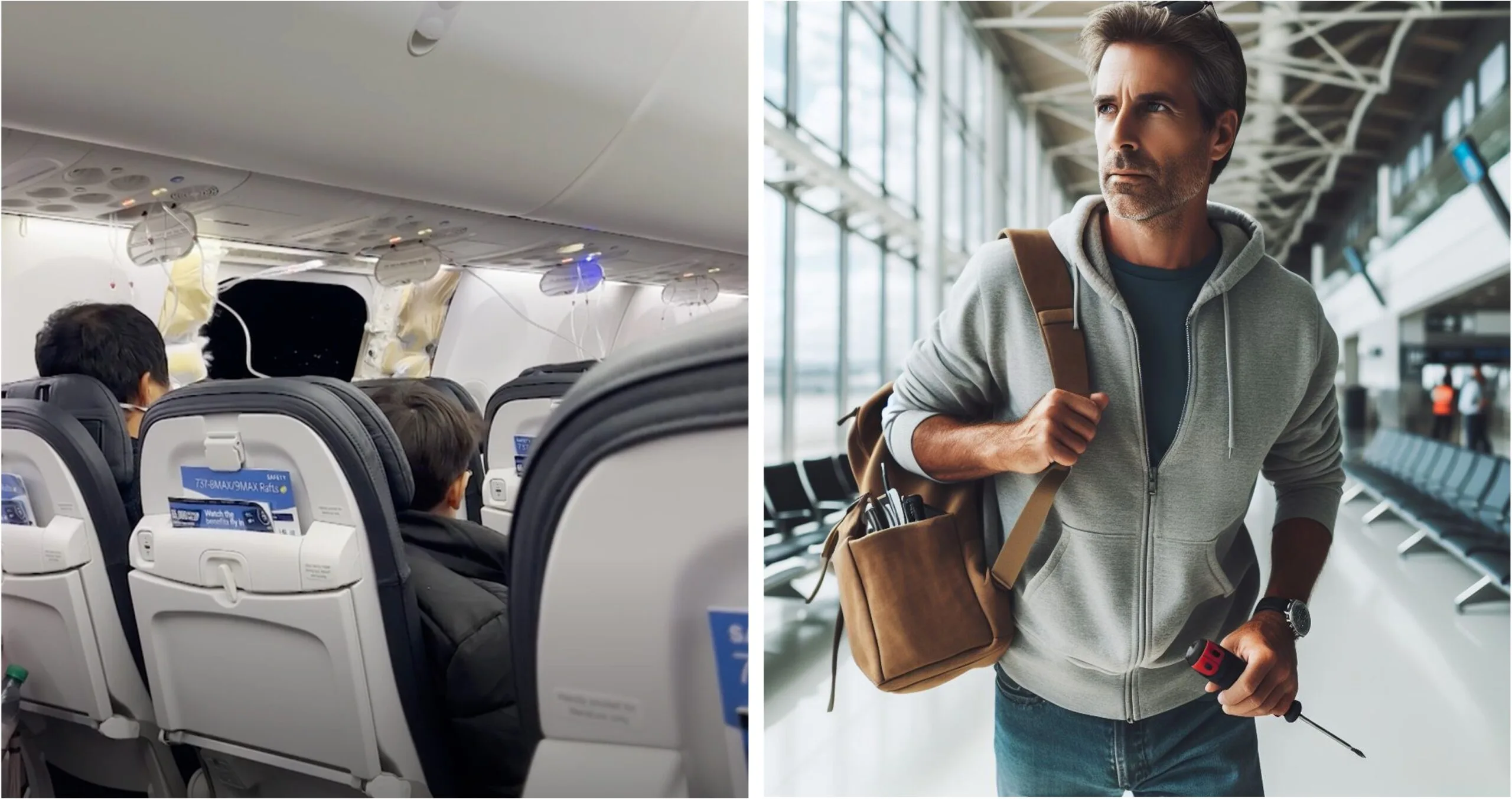(This is good news for people who trust Boeing more than medical workers. You can bring your own screwdriver.)
</satire> </fakeNews>
The serious narrative is shocking:
A Boeing mechanic failed to tighten the bolts on a door-size “cabin plug” that blew out on an Alaska Air 737Max flight. The aircraft had cabin pressure warnings onboard for some time, so instead of investigating/fixing, the airline simply ‘restricted’ the plane from ‘long flights over water’ so it could land quickly. No joke.



I don’t think we’ve actually gotten confirmation on what caused the failure yet. While loose bolts were found during a fleet wide inspection of that area of the aircraft, the tightness of the bolts that keep the door plug in place is irrelevant to the failure, as the locking pins in the end is what actually keeps the nuts from falling off, and thusly allowing the bolts to slide out of the holes where the keep the door from being able to move on its track.
To my knowledge we also haven’t gotten confirmation as to whether the mis-assembly happened at Spirit, where the door was first installed, during the subcontractor’s installation of the satellite data antenna, where the door plug may be removed for acess, or during finally integration by Boeing itself.
To be fair it doesn’t actually matter, as Boeing is responsible for inspecting the things they build at the end of the day and they’ve been having a lot of trouble since getting bought out by McDonall Douglas with cost cutting and penalizing their QA inspctors when they find something that needs to be redone, but it is likely more complicated than just a failure to tightnen bolts to spec.
The previous 737 max failure with the defective angle of attack sensor is astonishing. Not that engineers make mistakes, but the cover-up and everything they did to avoid the expense of training pilots about the known flaw – at the cost of lives. There is an hour long PBS documentary that shows how deep the rabbit hole goes. If you watch that, you’ll realize there is little hope for Boeing being safe. It’s a long line of systemic failure underpinned by business decisions.